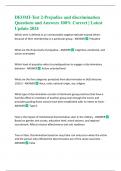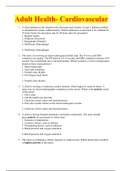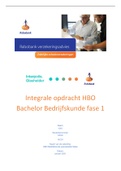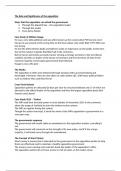Space theories
Space and place
Name Theory, model Explanation
Or method.
Occupation/
position
Edmund Phenomenology Phenomenology is an approach that takes the intuitive experience of phenomena (what presents itself to us) as its starting point
Husserl (interpretation of and tries to extract from it the essential features of experiences and the essence of what we experience.
(1859-1938) a phenomenon) All observations start with a phenomena. Trying to understand our subjectivity and the base structure of our experience is
important. Phenomenology is not the object itself, but how we perceive it.
Philosophy These are depended on our intentions: depending on our intentions we see different things.
Through our intentions, phenomena are attributed a meaning.
Phenomena are based on their interpretations.
Martin Phenomenology What is the meaning of being? What does it mean to be?
Heidegger Meaning: how it can be understood that which makes it intelligible (=able to be understood)
(1889-1976) Dasein (being in Intelligibility is not a property of a thing out there, but a property of the relationship between a thing and a human being (it is
the world) intelligible to a human being)
Philosophy Time is the horizon which determines our being, our temporary existence makes the difference between being and not being. It
also plays an important role in how we experience a place or object.
The essence of Dasein (being in the world, at one place) lies in existence in the way of our life. Dasein has an openness to the world
interpreting the world in possibilities.
Dasein is lived space > Dasein is dwelling (home-making)
Intention is always related beyond ourselves.
Consciousness is always consciousness of something, it is never cut off of an object.
Place can not be isolated from the rest of our environment.
Through a mood we are able to encounter things in the world.
Our practical being in the world is the way we deal with the world, the way we use the world, comparable with practically using an
instrument, equipment.
This differs from detached knowledge of the things in the world around us. Instead, knowledge is founded in the practical mode of
being in that consists in using thing while carrying out particular projects for the sake of certain ends.
, Immanuel Transcendental Space is a basic category, a precondition of our ability to observe.
Kant idealism. We can only imagine a thing spatially.
(1724-1804) The thinking is not separate from the spatial world of things.
Correspondence Space is the condition of the possibility to observe and imagine things as existing (Transcendental)
Philosophy Model. We only know the phenomenon how it appeals to us, not the thing itself
We can not observe the world as non-spatial. Spatiality is the way of seeing, in our way of observing, it is a precondition for the way
we see the world around us: Transcendental idealism.
Our perceptions and the concepts we use to describe them are 1 to 1 representations of the reality which is called the
correspondence model. According to this model our concepts refer to exist in reality it assumes we can objectively observe the
world around us. Separating the subject form the object.
Georg Res cogitans Tries to overcome scepticism as he says that only on the basis of the dialectical process of the subject (Res cogitans) and the object
Wilhelm (Res extensa) real truth can be established. Which is called the absolute spirit.
Friedrich Res extensa Example:
Hegel We think to see a coin on the floor and we want to pick it up, when we come closer we see that it is not a coin but a beer cap, the
(1770-1831) Absolute spirit initial truth is only a belief, for me it was a coin, for itself it is a beer cap. My whole experience for both the first instance and
second one is part of my knowledge and truth. Only those thoughts which I have in relation to something out there can be
Philosophy questioned and doubted and can serve to find a final truth which is not only one but an absolute one. My relationship to the world
out there is a dialectical relationship. (=two or more opinions/views).
Maurice Phenomenology The phenomenology of Merlau-Ponty is a reaction to earlier thinking. Which he criticises, or of which the ideas he developed
Merleau- further.
Ponty Our contact with The body is the medium of all perception (the organ of perception) and it is necessarily involved in all perception. The body serves
(1908-1961) the world as the reference point to the location of the object.
through our body. Space is conceptualized from this perspective.
Philosophy
Intentionality of Merlau-Ponty’s perception of space:
the body instead Human beings are historically determined living creatures.
of the mind Experience is always influenced by circumstances, practical goals and our norms and values.
Objective (neutral) scientific observation needs to be replaced by direct, daily, personal experience (life world experience).
Rejection of Cartesian Dualism, as well as rationalism or empiricism, founded on the work of Heidegger focussing on the direct and
original and direct contact we have with the world around us.
Space and place
Name Theory, model Explanation
Or method.
Occupation/
position
Edmund Phenomenology Phenomenology is an approach that takes the intuitive experience of phenomena (what presents itself to us) as its starting point
Husserl (interpretation of and tries to extract from it the essential features of experiences and the essence of what we experience.
(1859-1938) a phenomenon) All observations start with a phenomena. Trying to understand our subjectivity and the base structure of our experience is
important. Phenomenology is not the object itself, but how we perceive it.
Philosophy These are depended on our intentions: depending on our intentions we see different things.
Through our intentions, phenomena are attributed a meaning.
Phenomena are based on their interpretations.
Martin Phenomenology What is the meaning of being? What does it mean to be?
Heidegger Meaning: how it can be understood that which makes it intelligible (=able to be understood)
(1889-1976) Dasein (being in Intelligibility is not a property of a thing out there, but a property of the relationship between a thing and a human being (it is
the world) intelligible to a human being)
Philosophy Time is the horizon which determines our being, our temporary existence makes the difference between being and not being. It
also plays an important role in how we experience a place or object.
The essence of Dasein (being in the world, at one place) lies in existence in the way of our life. Dasein has an openness to the world
interpreting the world in possibilities.
Dasein is lived space > Dasein is dwelling (home-making)
Intention is always related beyond ourselves.
Consciousness is always consciousness of something, it is never cut off of an object.
Place can not be isolated from the rest of our environment.
Through a mood we are able to encounter things in the world.
Our practical being in the world is the way we deal with the world, the way we use the world, comparable with practically using an
instrument, equipment.
This differs from detached knowledge of the things in the world around us. Instead, knowledge is founded in the practical mode of
being in that consists in using thing while carrying out particular projects for the sake of certain ends.
, Immanuel Transcendental Space is a basic category, a precondition of our ability to observe.
Kant idealism. We can only imagine a thing spatially.
(1724-1804) The thinking is not separate from the spatial world of things.
Correspondence Space is the condition of the possibility to observe and imagine things as existing (Transcendental)
Philosophy Model. We only know the phenomenon how it appeals to us, not the thing itself
We can not observe the world as non-spatial. Spatiality is the way of seeing, in our way of observing, it is a precondition for the way
we see the world around us: Transcendental idealism.
Our perceptions and the concepts we use to describe them are 1 to 1 representations of the reality which is called the
correspondence model. According to this model our concepts refer to exist in reality it assumes we can objectively observe the
world around us. Separating the subject form the object.
Georg Res cogitans Tries to overcome scepticism as he says that only on the basis of the dialectical process of the subject (Res cogitans) and the object
Wilhelm (Res extensa) real truth can be established. Which is called the absolute spirit.
Friedrich Res extensa Example:
Hegel We think to see a coin on the floor and we want to pick it up, when we come closer we see that it is not a coin but a beer cap, the
(1770-1831) Absolute spirit initial truth is only a belief, for me it was a coin, for itself it is a beer cap. My whole experience for both the first instance and
second one is part of my knowledge and truth. Only those thoughts which I have in relation to something out there can be
Philosophy questioned and doubted and can serve to find a final truth which is not only one but an absolute one. My relationship to the world
out there is a dialectical relationship. (=two or more opinions/views).
Maurice Phenomenology The phenomenology of Merlau-Ponty is a reaction to earlier thinking. Which he criticises, or of which the ideas he developed
Merleau- further.
Ponty Our contact with The body is the medium of all perception (the organ of perception) and it is necessarily involved in all perception. The body serves
(1908-1961) the world as the reference point to the location of the object.
through our body. Space is conceptualized from this perspective.
Philosophy
Intentionality of Merlau-Ponty’s perception of space:
the body instead Human beings are historically determined living creatures.
of the mind Experience is always influenced by circumstances, practical goals and our norms and values.
Objective (neutral) scientific observation needs to be replaced by direct, daily, personal experience (life world experience).
Rejection of Cartesian Dualism, as well as rationalism or empiricism, founded on the work of Heidegger focussing on the direct and
original and direct contact we have with the world around us.











